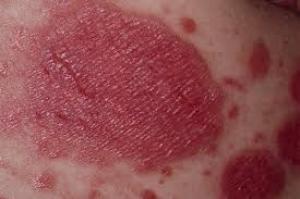Genital psoriasis
About two-thirds of people suffering from psoriasis face genital psoriasis some time in their lives. That makes it somewhere between 33-63%. Psoriasis of the genitals requires specialized care because of the sensitive skin of the area. It is important to identify the issue early on so that proper treatment can be started without wasting any time.
What is Genital Psoriasis?
As the name suggests, genital psoriasis is the psoriasis of the genitals. People suffering from psoriasis may experience mild to severe psoriasis of the genitals. There is no cure for psoriasis of the genitals. However, with some medications, the symptoms can be controlled.
 Genital psoriasis
Genital psoriasisTypes of Genital Psoriasis
Inverse Psoriasis
Inverse psoriasis affects the genital and groin area. It can cause dye, smooth, purple, or red patches on the skin of the genital and groin area. The skin feels itchy, sore, and irritated. It is more painful than other forms of psoriasis because of the sensitive skin of these areas.
Plaque Psoriasis
While it is most common on knees, elbows, scalp, and the torso, plaque psoriasis can also appear in the genital area. The symptoms of plaque psoriasis include thick red patches of skin. These patches often have a white or silvery buildup of dead skin cells. It can cause cracking, itching, pain, and discomfort.
Genitals are one of the most sensitive areas of the human body. This heightened sensitivity of the area causes ongoing discomfort if one suffers from psoriasis. Psoriasis can affect different regions of the genital area with different symptoms for each.
Genitals
The scrotum, penis, and vulva, all can develop plaque or inverse psoriasis. While it is highly rare, psoriasis can also develop inside of the vagina. Inverse psoriasis is most common around the vulva. However, plaques may be formed by constant dryness and scratching. Both circumcised and uncircumcised penis can develop psoriasis. The initial symptoms of genital psoriasis in males include the appearance of small, red-colored patches on the tip of the penis.
Pubis
The pubis is the area above the genitals. This area can also develop plaque psoriasis.
Upper Thighs
The upper part of thighs right next to the genital area is also susceptible to the development of psoriasis. The skin in these areas gets irritated easily when you walk, move, or run. You can use baby powder or wear spandex shorts under your clothes to decrease the irritation caused by friction.
Creases between Thighs and Genital Area
Psoriasis can also develop in the creases between the thighs and the genital area. Psoriasis that develops here is usually reddish-white in color and is non-scaly. You may also experience cracks in this area of the skin. It is susceptible to fungal infections as well.
Inverse psoriasis may also develop in the areas between the anus to scrotum and anus to the vulva. Red, non-scaly psoriasis may also develop in the area around the anus. It can lead to itching and irritation. Pain during bowel movements, itching, bleeding, and excessive dryness is also some common symptoms of genital psoriasis.
Creases between Buttocks
The area of skin between the buttocks can also develop plaque or inverse psoriasis.
Treatment of Genital Psoriasis
Here are some treatment options for genital psoriasis:
Topicals
The application of topicals can moisturize the skin and relieves itching and pain associated with psoriasis. Tazarotene, calcipotriene, and corticosteroids are some common topicals prescribed for genital psoriasis. You can also use over the counter moisturizers to keep your skin moisturized.
Phototherapy
Genital psoriasis can also be treated with ultraviolet B (UVB) light.
Oral Treatments
While oral treatments are not generally prescribed for genital psoriasis, they can sometimes be effective for people who also have psoriasis in other areas of the body.
Get in touch with your doctor before taking any medication for genital psoriasis.
Back to top Psoriasis en la pierna
Psoriasis en la piernaPágina de inicio
Mapa del sitio
Mapa del sitio en orden alfabético